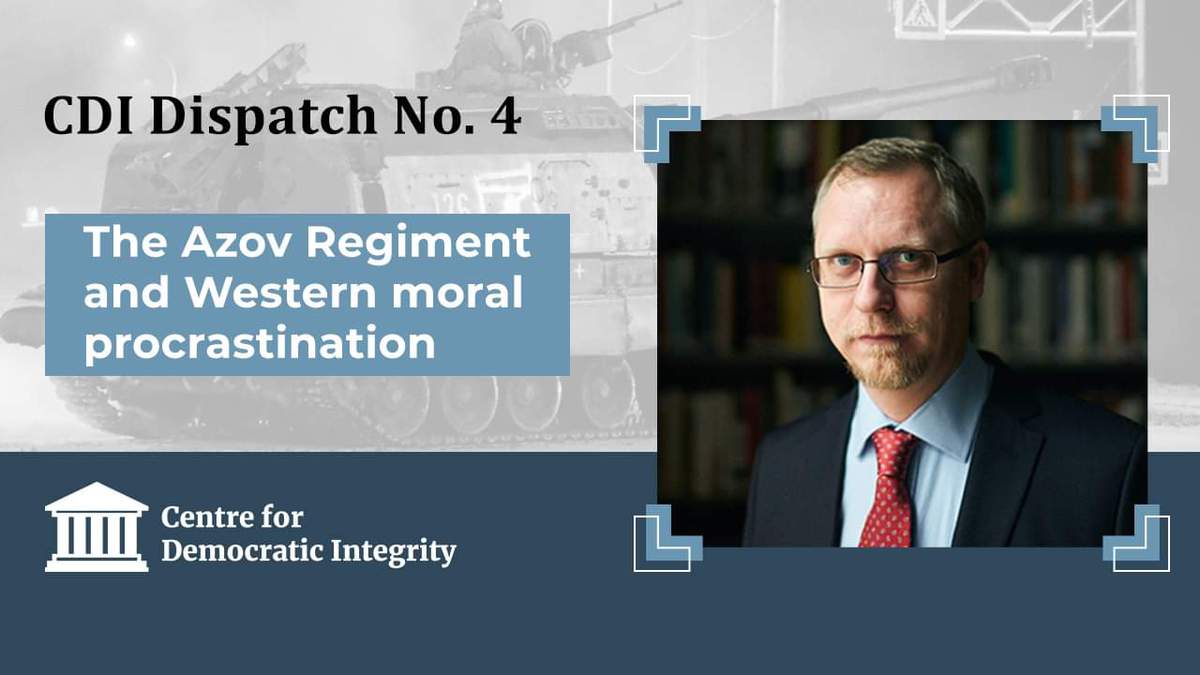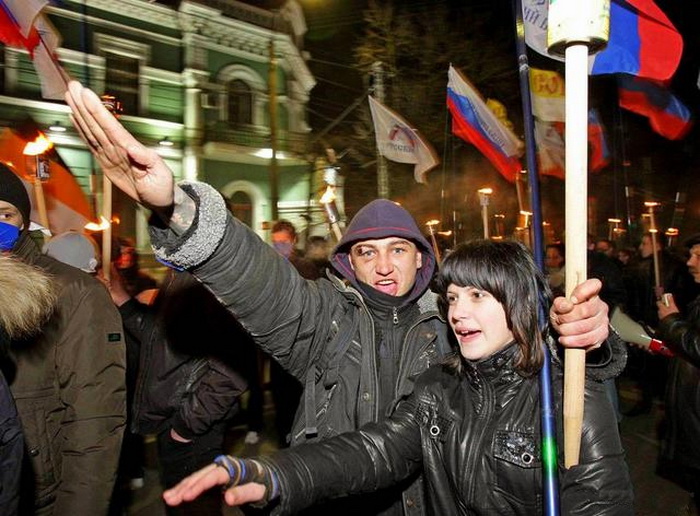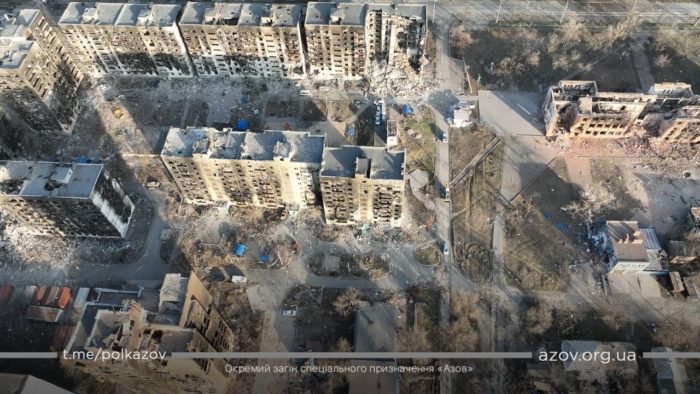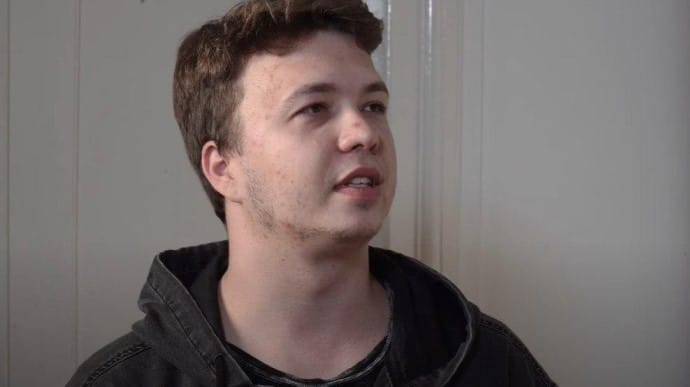More than a month has passed since Russia launched its full-scale invasion of Ukraine. Russian invaders have already committed multiple war crimes, and the genocidal intentions of the current Russian leadership towards the Ukrainian nation are becoming increasingly obvious.
Although massively demoralized and often – and understandably – turning arms against each other, Russian invaders do not hesitate to shell and bomb any building they can reach. No matter if it’s a residential building, a hospital, a kindergarten, a local council, a theater, or a museum. They destroy everything, they kill indiscriminately.
It sometimes feels that they have adopted the United Nations definition of genocide as literally their program:
- Killing members of the group – check!
- Causing serious bodily or mental harm to members of the group – check!
- Preventing births within the group – check!
- And now they have started kidnapping Ukrainian children and moving them to Russia. Forcibly transferring children of the group to another group – check!
In order to distract Western attention from the immense humanitarian catastrophe caused by the invasion, Russia is using a wide range of “smoke and mirrors” techniques.
All these descriptions are wrong, and this article discusses Azov, its history, and evolution, as well as explaining the reasons behind the information attacks on this military unit that plays an important role in resisting the Russian genocidal invasion.
From the Azov Battalion to the Azov Regiment
Back in 2014, when pro-Russian Ukrainian President Viktor Yanukovych fled to Russia after his regime had killed more than a hundred of protesters, Russia took advantage of the political turmoil in Ukraine and the hesitancy of Western leadership.
It illegally annexed Crimea and invaded eastern Ukraine. Ukraine could hardly defend itself – years of corrupt pro-Russian leadership almost destroyed Ukrainian armed forces. And many in the Ukrainian military were simply not psychologically ready to offer an armed response to those who were their neighbors. Malicious Russian leaders were obviously aware of those weaknesses of the Ukrainian society at that time and exploited them to the maximum.
Those networks were built during the EuroMaidan revolution and following the beginning of the Russian invasion, they formed the first resistance groups that were eventually transformed into volunteer territorial defense battalions and special tasks patrol police units. Azov was formed as a volunteer police battalion in May 2014.
The original battalion consisted mostly of football hooligans and members of the Ukrainian far-right, and it was the far-right organization “Patriot of Ukraine” that was in charge of the original battalion.
Like many of my colleagues researching the far right, I was extremely skeptical and critical of the original Azov battalion for the following four major reasons:
- The “Patriot of Ukraine” was one of the most racist and anti-Semitic groups in Ukraine. Its members were involved in spreading far-right propaganda and occasional political and criminal violence. It was almost impossible to trust those people, especially given their anti-establishment and anti-democratic rhetoric.
- With very few exceptions, the leadership of the “Patriot of Ukraine,” including the first commander of Azov, did not participate in the Maidan revolution, as they were imprisoned on different charges. They were released – together with other people who were considered political prisoners of the pro-Russian regime – right after Yanukovych fled to Russia. That meant that the leaders of the “Patriot of Ukraine” did not have an opportunity to show their worth during the dramatic periods of the Ukrainian revolution, and we did not know what to expect of them.
- The far-right imagery of the original Azov battalion played into the hands of the Russian propaganda that pictured the Ukrainian revolution as a “fascist coup” and presented all Ukrainian volunteer military units as “neo-Nazis.” As the West was hesitating to help Ukraine in its defense against the Russian aggression, the far-right imagery of the battalion contributed to the Russian discreditation of Ukraine on the international level.
- Several key people who were directly involved in the formation of the Azov battalion had an extremely dubious history of cooperating not only with pro-Russian forces in Ukraine but also with Russian political spin-doctors. Moreover, neither Azov nor other battalions did proper screening of volunteers, some of whom came from Russia. All that created a huge security risk of Russian operatives seizing control of Azov and turning it into an anti-Ukrainian force.
To sum up these points, we had well-justified concerns about Azov and did not trust it. Nobody doubted the fact that, at that time, Ukraine needed volunteers of any social or political background – again, the Ukrainian army was almost non-existent then.
With time, some of our concerns disappeared. In June 2014, Azov played an important role in liberating the Ukrainian city of Mariupol from pro-Russian forces, and that proved not only Azov’s combat effectiveness but also their truly pro-Ukrainian position. Because of its proven fighting abilities, Azov started to attract more volunteers, and many of them had no political background at all.
In autumn 2014, the battalion was transformed into a regiment and was enrolled in the National Guard of Ukraine, which is part of the Ministry of Internal Affairs. That created a hierarchical vertical to ensure – as much as possible – that Azov would remain loyal to the Ukrainian state.
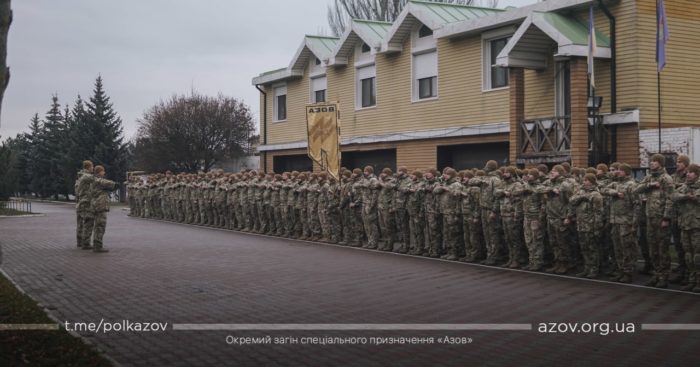
Moreover, within a few months after the creation of the Azov battalion, people with a history of dubious links to Russian and pro-Russian stakeholders moved away from Azov. And although several Russian agents indeed infiltrated the regiment, they were never able to exert any serious impact on its military service.
-
Related: At the front in Shyrokyne with the Azov regiment – photo report (2015)
The National Corps and electoral failure of far-right in Ukraine
The remaining major concern was the political aspect of the regiment. However, because of the domestic and international criticism of the far-right background of the regiment’s original leadership, Azov started the process of de-politicization. In 2015, a number of former fighters of Azov formed an NGO “Azov Civil Corps,” which was transformed into a political party National Corps in 2016.
They hoped that the popular support for defenders of Ukraine would somehow translate into political success and electoral victories. Hence, at that time, the separation of the National Corps from Azov was yet not complete – they had to keep the link, even if only symbolical, between the defenders of Motherland who enjoyed respect from the Ukrainian society and the political project. But already then, it was clear that the regiment followed orders of Ukraine’s Interior Ministry, while the National Corps had no power over the military unit.
Figures for the National Corps and other Ukrainian far-right parties in public opinion polls were devastatingly low. The National Corps kept on referring to Azov as its affiliated organization, and naïve Western journalists and experts took all that bluster at face value instead of realizing that Azov was not a political organization and that its command structure was completely separate from the National Corps.
By the time of the parliamentary elections in 2019, it became evident that no Ukrainian far-right party would make it to the parliament. Out of despair, the Ukrainian far-right joined forces to compete in the parliamentary elections. However, their united list, which included members of the Freedom party, National Corps, Right Sector, and a few minor far-right groups, received only 2.15% of the vote and failed to get them elected into the parliament.
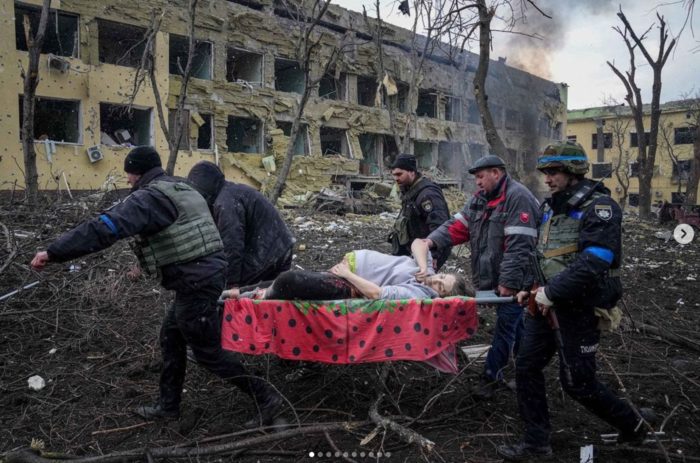
The only time when the Ukrainian far-right was relatively successful in the elections was in 2012 when the Freedom (Svoboda) party received 10.45% of the vote.
The only reason for their relative success was because at that time they were considered the most radical opposition to the pro-Kremlin foreign policy agenda of Yanukovych’s regime. It is important to stress: they secured seats in the Ukrainian parliament not because of their far-right program but because of their radical criticism of Russia and its agents in Ukraine.
The Ukrainian far-right in general fell into irrelevance, and the National Corps and groups around it suffered an identity crisis. They tried to experiment with different ideological narratives, largely borrowed from Western far-right discourses, but none of them worked outside of very small circles.
Ironically, while Western far-right groups tried to exploit the COVID-19 pandemic in 2020-2021 to promote their anti-establishment conspiracy theories, the National Corps ran an information campaign on how to avoid getting infected, and their explanations and recommendations conformed to the mainstream domestic and international understanding of the new coronavirus and its spread. The National Corps still refers to its symbolical link to the Azov regiment, but it is rather political propaganda of the National Corps than a reality.
Azov today: defenders of Mariupol
Azov today is a highly professional special operations detachment. Not a political organization, not a militia, not a far-right battalion. It is still formally subordinated to the National Guard of Ukraine’s Interior Ministry, but now it largely coordinates its military activities with the Armed Forces, therefore, one can expect that Azov will move under the command of Ukraine’s Defense Ministry.
The Azov regiment uploaded this video of a street fight in which they destroyed a Russian IFV on 14 March 2022
Azov consists predominantly of Ukrainian citizens of various ethnic backgrounds.
The Kremlin, pro-Kremlin, and far-left media picture Azov as haters of Russian speakers. But not only do Azov fighters speak mostly Russian language among themselves, on average they speak better Russian than the Russian invaders. This fact alone dismisses blatant Kremlin lies about Azov allegedly fighting against Russian speakers in eastern Ukraine.
An obvious explanation is that the attack on Azov is part of the Kremlin’s disinformation narrative on Nazis in Ukraine.
A less obvious yet probably more important explanation is linked to the place where Azov has been stationed since 2014. This is the Ukrainian city of Mariupol and the area around it. Back in 2014, Azov greatly contributed to the liberation of Mariupol from the pro-Russian henchmen.
Mariupol is not simply yet another Ukrainian city. If you look at the map of Ukraine, you will see that Mariupol is the largest and most important city located in the area that is considered to be a potential land bridge from Russia to the annexed Crimea. Given the logistical troubles that Russia has with supplying Crimea with water, electricity, and other resources, it is crucial for Russia to occupy the territories of that potential land bridge. But Mariupol stands in the way. And Azov stands in the way.
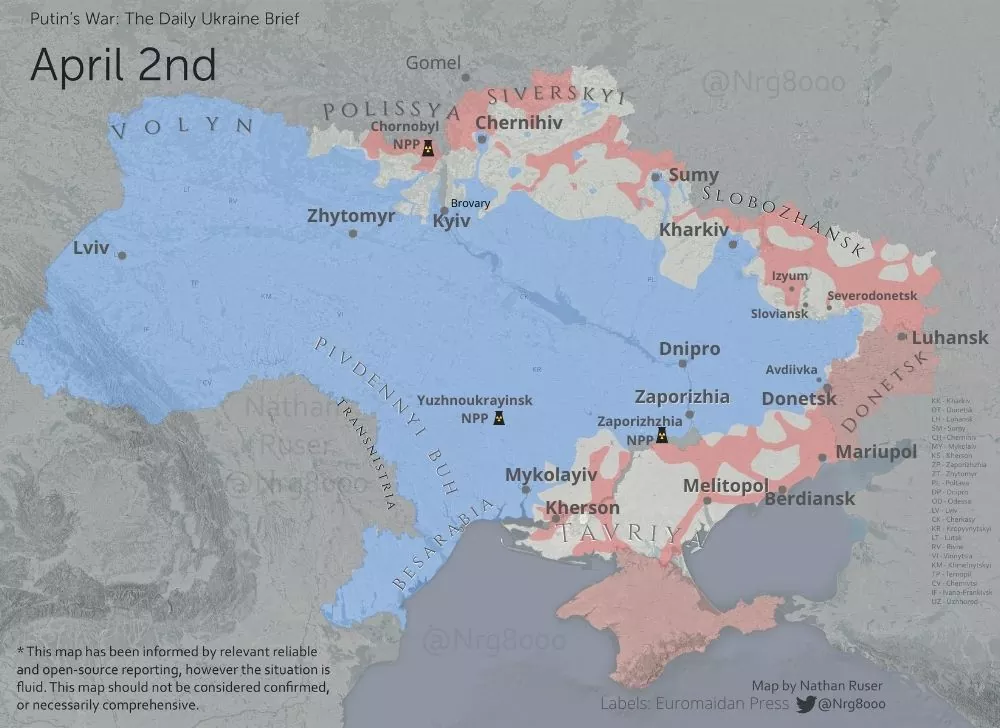
The entire regiment is now in Mariupol.
Through its agents in Ukraine and elsewhere, Russia has been trying to destroy Azov or, at the very least, weaken its military capabilities.
The Kremlin’s efforts have, to a certain extent, succeeded. And today, the Azov regiment, which defends Mariupol completely surrounded by the Russian invaders, has neither Javelin portable anti-tank missile systems nor Bayraktar combat aerial vehicles that would have helped them to defend the city and save the lives of thousands of residents of Mariupol.
All “thanks” to those people – Western pro-Russian politicians, pseudo-journalists, fake experts, ignorant consultants – who directly or indirectly lobbied against training Azov and equipping it with advanced weapons.
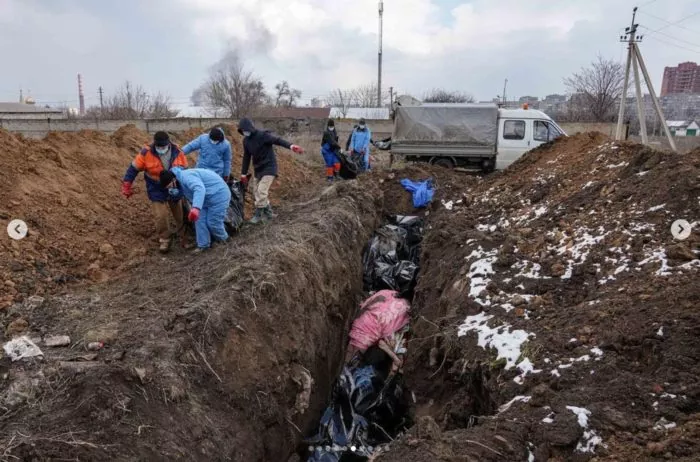
The West's dysmetropsia and moral procrastination
Naturally, one can say that the Westerners obsessed with the alleged “neo-Nazi” threat of Azov are all victims of dysmetropsia, an inability to judge an object’s size. In one of the episodes of the great British sitcom, “Father Ted,” the main character tried to explain to his less smart colleague, Father Dougal McGuire, the difference in size between the small toy cows in his hand and the real cows in the distance. Father Ted was unsuccessful because Father Dougal had dysmetropsia and, frankly, was an eejit.
But I think that dysmetropsia cannot explain everything, and I would rather talk about Western moral procrastination.
Procrastination is about voluntarily distracting ourselves with insignificant activities from performing really important tasks. Moral procrastination is about giving preference to small exciting things instead of dealing with difficult issues that actually matter.
Mariupol, where Azov is based, is a predominantly Russian-speaking home of ethnic Ukrainians, Russians, Greeks, Belarusians, Armenians, Jews. Or it used to be their home; before the Russian invaders came.
Many of the dead are lying on the streets of Mariupol because every time their relatives and friends try to pick them up to bury them, Russian invaders shoot at them. If people are lucky to pick up the dead, they often have to bury them in mass graves. And those Ukrainians who still survive are forced to hide in the basements, where they starve, freeze, and die.
"If the Ukrainian troops don't relieve the siege of the city in the near future, then a famine will begin in Mariupol, and the genocide of Ukrainians devised by Russians will be completed." - @Polk_Azov pic.twitter.com/HXtqUik075
— Euromaidan Press (@EuromaidanPress) March 9, 2022
This chilling horror is psychologically hard to process, but we are morally obliged to be aware that this is happening in Europe, just around the corner. And our human nature pushes us to do something to stop Russian inhuman war crimes.
It's much more exciting, of course, than to stand up to the Russian genocidal invasion. This is moral procrastination that should be met with disdain and contempt.
For Azov’s selfless epic struggle against superior numbers of the Russian enemy forces in Mariupol, Ukrainian President Volodymyr Zelenskyy recently awarded the country’s highest award, “Hero of Ukraine,” to Azov Commander Denys Prokopenko. Well deserved.
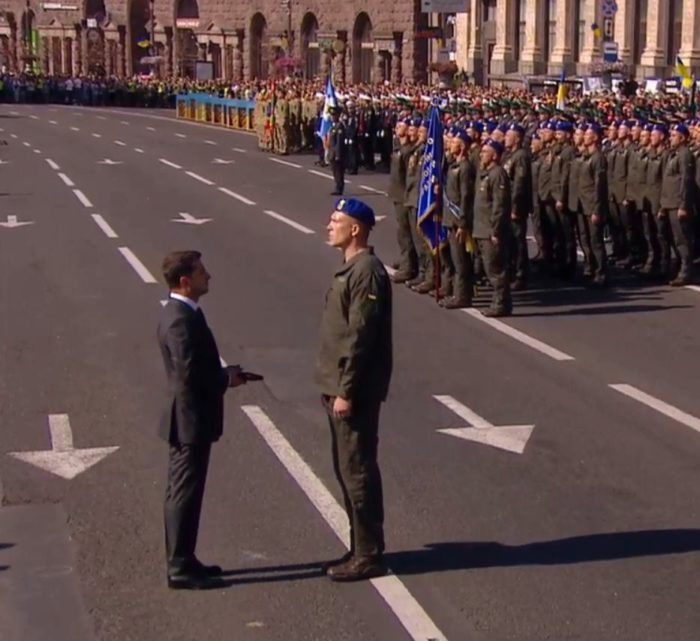
In Mariupol, Azov defends not only the living and the wounded but also the dead. Not only do they deserve to be properly buried, but they are also silent witnesses of the Russian war crimes. As we well know, Russian invaders are equipped with mobile crematoriums which they use to destroy evidence of their villainy. And in Mariupol, Azov is now defending not only the freedom of the living but also the dignity of the dead.
Read More:
- “They talked to us like we were criminals” – how Russian occupiers deported me from Mariupol
- Martyred city of Mariupol wiped out of existence by Russia’s incessant shelling
- I was inside when the Russians bombed Mariupol drama theater: survivor’s story
- Is the Azov Battalion a terrorist organization as 40 US House Democrats claim? (2019)
- Azov regiment debunks fake video with impostors by making one themselves (2016)
- Fake Azov video tries to frame Ukraine prior to Dutch referendum (2016)
- At the front in Shyrokyne with the Azov regiment – photo report (2015)
- The Azov regiment is “outraged” by statements in the USA House of Representatives (2015)

